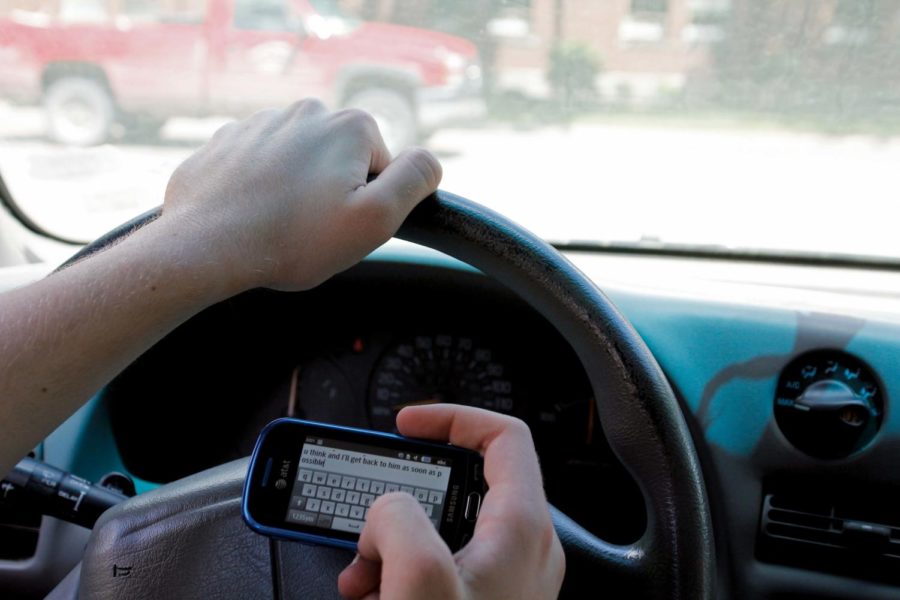Officers now able to fine drivers who text while driving
Photo: Rebekka Brown/Iowa State Daily
The law banning texting while driving is now in effect.
July 6, 2011
Drivers in Iowa will now be fined if they are writing, sending or reading text messages while operating a motor vehicle.
The ban on texting while driving is listed under Iowa code 321.276. Legislators passed the bill last year, but from July 1, 2010 until June 30, 2011, police officers were only able to give out warnings to offenders.
“It’s a new law, and not everybody follows every word the legislature produces,” said Sen. Herman Quirmbach. “It’s a matter of having more time to get the word out. You need to have a grace period.”
The grace period ended last Thursday, which was the end of the 2010 fiscal year. Now, instead of being issued warnings, offenders will have to pay a hefty fine.
“The scheduled fine is $30. There’s also a 35 percent surcharge,” said Cmdr. Jim Robinson of the Ames Police Department. “Total fine, plus surcharge, plus court charge is $100.50, which is quite substantial.”
The law states that drivers “shall not use a hand-held electronic communication device to write, send or read a text message, instant message or electronic mail.”
The texting ban is in a category of offenses subject to secondary enforcement, meaning that individuals cannot be pulled over solely because they are texting.
“If people are texting while driving, they’re going to have a hard time obeying traffic laws because they are not paying attention,” said Lt. Elliott Florer of the ISU Police Division. “[Secondary enforcement] allows law enforcement, if they stopped someone for speeding during the process of that investigation … [to] figure out why that person was doing what they were doing.”
Robinson said that it is actually difficult to see if someone is texting while driving.
“It’s hard to note that — to be able to tell what others are doing,” Robinson said. “What we are hoping … that by creating this provision, people, within their own honor system, will refrain from doing this.”
When an officer pulls someone over for a primary violation, the officer can interview the offender to see if the person was using a hand-held device while driving. The law does not address if officers can confiscate the offender’s device.
Robinson said confiscation would be within the remit of officers.
“But, we hope that the officer will be able to determine if the operator was texting by having a conversation with them,” he added.
Both Robinson and Florer said they hope this law will keep people safe on the roads.
“[The texting ban] is just another tool in our toolbox to make sure that our roads can be as safe as possible,” Florer said.







